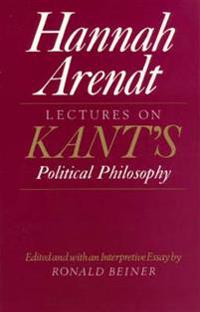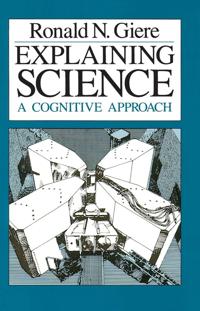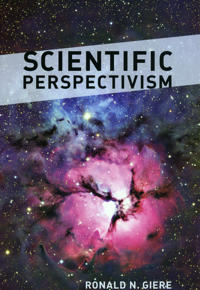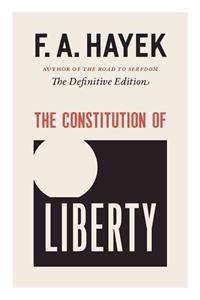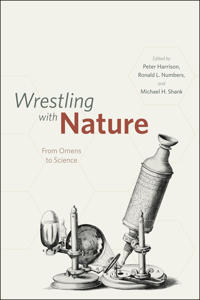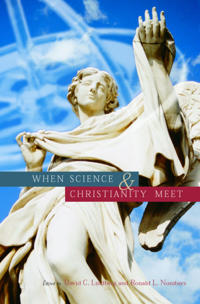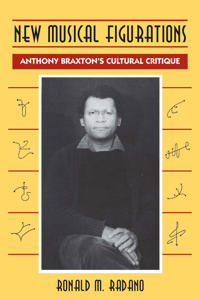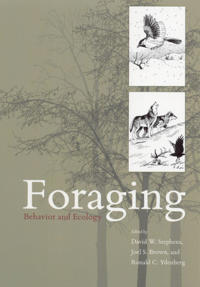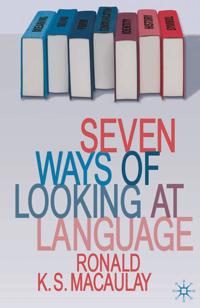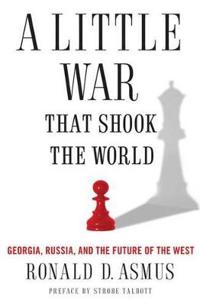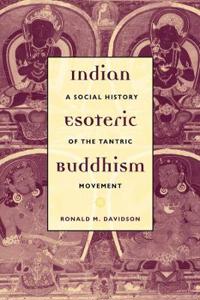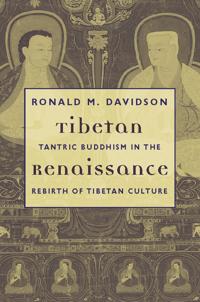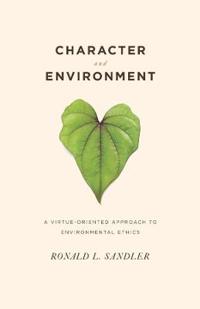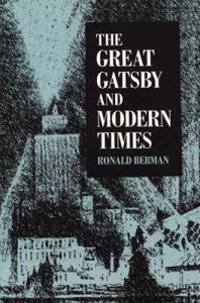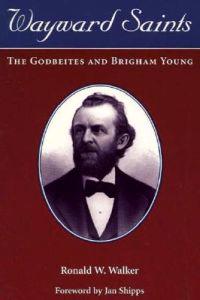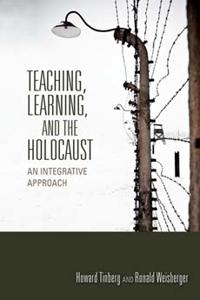Lectures on Kant's Political Philosophy (Häftad)
avHannah Arendt, Ronald S. Beiner
ISBN: 9780226025957 - UTGIVEN: 198909Explaining Science (Häftad)
avRonald N. Giere
ISBN: 9780226292069 - UTGIVEN: 199005Debate over the nature of science has recently moved from the halls of academia into the public sphere, where it has taken shape as the "science wars." At issue is the question of whether scientific knowledge is objective and universal or socially mediated, whether scientific truths are independent [...]
Scientific Perspectivism (Pocket)
avRonald N. Giere
ISBN: 9780226292137 - UTGIVEN: 201006Many people assume that the claims of scientists are objective truths. But "Scientific Perspectivism" argues that the acts of observing and theorizing are both matters of perspective - which makes scientific knowledge contingent. Using the example of color vision in humans to illustrate how his theo[...]
The Constitution of Liberty: The Definitive Edition (Häftad)
avFriedrich A. Von Hayek, Ronald Hamowy
ISBN: 9780226315393 - UTGIVEN: 201104Wrestling with Nature (Pocket)
avPeter Harrison, Ronald L. Numbers, Michael H. Shank
ISBN: 9780226317830 - UTGIVEN: 201106When and where did science begin? Historians have offered different answers to these questions, some pointing to Babylonian observational astronomy, some to the speculations of natural philosophers of ancient Greece. Others have opted for early modern Europe, which saw the triumph of Copernicanism a[...]
When Science and Christianity Meet (Häftad)
avRonald L. Numbers
ISBN: 9780226482163 - UTGIVEN: 200809This book, in language accessible to the general reader, investigates twelve of the most notorious, most interesting, and most instructive episodes involving the interaction between science and Christianity, aiming to tell each story in its historical specificity and local particularity.Among the ev[...]
New Musical Figurations (Häftad)
avRonald M. Radano
ISBN: 9780226701967 - UTGIVEN: 199312By relating biography to the cultural and musical contours of contemporary American life, Ronald M. Radano observes jazz practice as part of the complex interweaving of postmodern culture - a culture that has eroded conventional categories defining jazz and the jazz musician. Radano accomplishes all[...]
Foraging (Pocket)
avDavid W. (EDT) Stephens, Joel S. (EDT) Brown, Ronald C. (EDT) Ydenberg
ISBN: 9780226772646 - UTGIVEN: 2007-09Foraging is fundamental to animal survival and reproduction, yet it is much more than a simple matter of finding food; it is a biological imperative. Animals must find and consume resources to succeed, and they make extraordinary efforts to do so. For instance, pythons rarely eat, but when they do, [...]
Seven Ways of Looking at Language (Häftad)
avRonald Macaulay
ISBN: 9780230279315 - UTGIVEN: 2010-11From the publication of Noam Chomsky's revolutionary Syntactic Structures in 1957, to the counter-revolutions that followed, linguistics has seen many fashions over the years. With new ideas and discoveries constantly challenging the ways we look at language, Ronald Macaulay provides a brief and liv[...]
Margaret Thatcher And Ronald Reagan (Inbunden)
avJames Cooper
ISBN: 9780230304055 - UTGIVEN: 2012-10-10A new exploration of the relationship between the Margaret Thatcher and Ronald Reagan administrations in domestic policy. Using recently released documentary material and extensive research interviews, James Cooper demonstrates how specific policy transfer between these 'political soul mates' was mo[...]
A Little War That Changed the World (Inbunden)
avRonald D. Asmus
ISBN: 9780230617735 - UTGIVEN: 200912The brief war between Russia and Georgia in August 2008 seemed to many like an unexpected shot out of the blue that was gone as quickly as it came. Former Assistant Deputy Secretary of State Ronald Asmus contends that it was a conflict that was prepared and planned for some time by Moscow, part of a[...]
Strategies for Work with Involuntary Clients: A Proposal for Linkage (Inbunden)
avRonald H. Rooney
ISBN: 9780231067683 - UTGIVEN: 1979-08-01Parchment, Printing and Hypermedia: Communication and World Order Transformation (Pocket)
avRonald Deibert
ISBN: 9780231107136 - UTGIVEN: 1997-08-21One Long Experiment: Scale and Process in Human History (Övrig)
avRonald E. Martin
ISBN: 9780231109048 - UTGIVEN: 1998-04-08Addressing the history of the earth in terms of geological process and the resolution of the fossil record, Ronald Martin presents a report on the current state of knowledge on a group of interconnected themes - process, scale and hierarchy, and the methodologies of historical sciences. He examines [...]
Voices and Echoes for the Environment: Public Interest Representation in the 1990s and Beyond (Inbunden)
avRonald G. Shaiko
ISBN: 9780231113540 - UTGIVEN: 1999-07-21Indian Esoteric Buddhism: A Social History of the Tantric Movement (Övrig)
avRonald M. Davidson
ISBN: 9780231126182 - UTGIVEN: 2002-11-27Despite the rapid spread of Buddhism -- especially the esoteric system of Tantra, one of its most popular yet most misunderstood forms -- the historical origins of Buddhist thought and practice remain obscure. This groundbreaking work describes the genesis of the Tantric movement in early medieval I[...]
Indian Esoteric Buddhism (Häftad)
avRonald M. Davidson
ISBN: 9780231126199 - UTGIVEN: 200211Despite the rapid spread of Buddhism -- especially the esoteric system of Tantra, one of its most popular yet most misunderstood forms -- the historical origins of Buddhist thought and practice remain obscure. This groundbreaking work describes the genesis of the Tantric movement in early medieval I[...]
Tibetan Renaissance (Häftad)
avRonald M. Davidson
ISBN: 9780231134712 - UTGIVEN: 2005-08How did a society on the edge of collapse and dominated by wandering bands of armed men give way to a vibrant Buddhist culture, led by yogins and scholars? Ronald M. Davidson explores how the translation and spread of esoteric Buddhist texts dramatically shaped Tibetan society and led to its rise as[...]
Education of Ronald Reagan, The: The General Electric Years and the Untold Story of His Conversion to Conservatism (Inbunden)
avThomas W. Evans
ISBN: 9780231138604 - UTGIVEN: 2006-11-07Education of Ronald Reagan, The: The General Electric Years and the Untold Story of His Conversion to Conservatism (Övrig)
avThomas W. Evans
ISBN: 9780231138611 - UTGIVEN: 2008-07-21In October 1964, Ronald Reagan gave a televised speech in support of Republican presidential nominee Barry Goldwater. "The Speech," as it has come to be known, helped launch Ronald Reagan as a leading force in the American conservative movement. However, less than twenty years earlier, Reagan was a [...]
Character and Environment (Häftad)
avRonald L. Sandler
ISBN: 9780231141079 - UTGIVEN: 200903Virtue ethics is now widely recognized as an alternative to Kantian and consequentialist ethical theories. However, moral philosophers have been slow to bring virtue ethics to bear on topics in applied ethics. Moreover, environmental virtue ethics is an underdeveloped area of environmental ethics. A[...]
"The Great Gatsby" and "Modern Times" (Häftad)
avRonald Berman
ISBN: 9780252065897 - UTGIVEN: 199608Using editorials, columns, advertisements, silent film, architecture, and photography, Berman develops the theme of modern consciousness.[...]
Wayward Saints (Häftad)
avRonald Walker
ISBN: 9780252067051 - UTGIVEN: 2004-06A story that includes spiritualist seances, conspiracy, and an important church trial, Wayward Saints chronicles the 1870s challenge of a group of British Mormon intellectuals to Brigham Young's leadership and authority. William S. Godbe and his associates revolted because they disliked Young's auth[...]
Teaching, Learning, and the Holocaust (Pocket)
avHoward Tinberg, Ronald Weisberger, Howard Tinberg
ISBN: 9780253011336 - UTGIVEN: 2013-12Classroom study of the Holocaust evokes strong emotions in teachers and students. Teaching, Learning, and the Holocaust assesses challenges and approaches to teaching about the Holocaust through history and literature. Howard Tinberg and Ronald Weisberger apply methods and insights of the Scholarshi[...]

